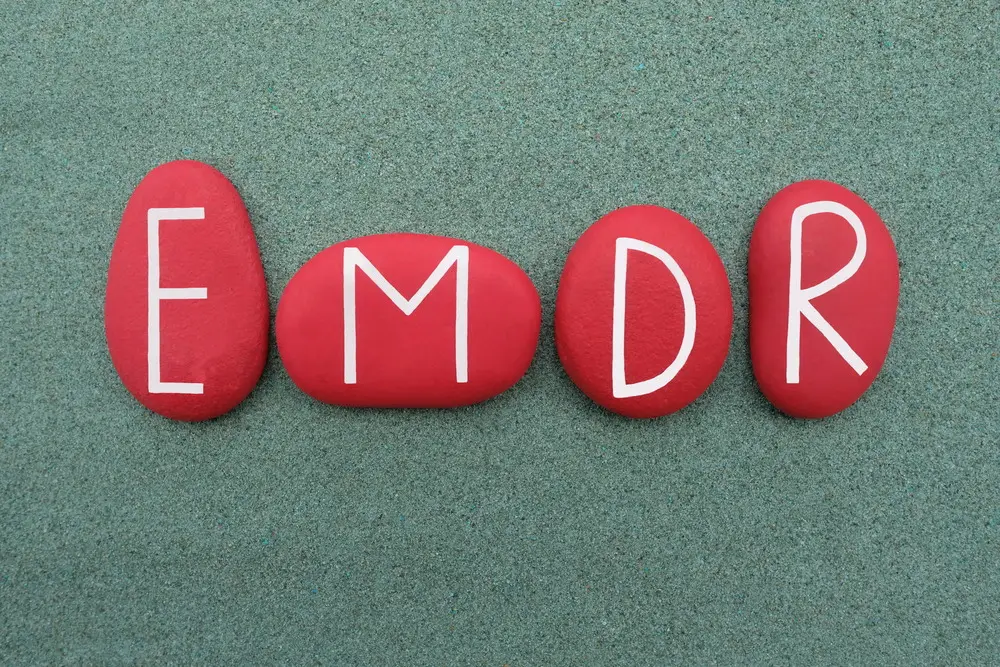At Bespoke Treatment, we are well known as an integrative mental health treatment clinic, offering safe alternative treatment options such as transcranial magnetic stimulation, ketamine treatment, and Zulresso. However, our clinics provide full-range care to clients, including a number of standard psychotherapies. We develop personalized treatment plans for each patient that offer complete treatment coverage in order to fully support patients through the journey to recovery and wellness.
A patient’s treatment plan, whether or not it includes an intensive outpatient program or partial hospitalization program, can include one or multiple types of group and individual therapy. We help each patient find the therapies and treatments that best suit their needs and goals. These are the types of therapy that we offer at our clinics:
Cognitive Behavioral Therapy (CBT)
You’ve probably heard of this one. Cognitive behavioral therapy, or CBT, is a longstanding therapy that is used to treat a variety of mental disorders and conditions, including anxiety disorders, alcohol and drug abuse, depression, eating disorders, and marital problems, as well as severe mental illness. It is based on three main core principles:
- Psychological issues are partly based on unhelpful, negative, or faulty thoughts or ways of thinking.
- Unhelpful ways of thinking lead to learned patterns of unhelpful behaviors.
- Individuals can learn better ways of coping with psychological issues and change maladaptive thoughts and behaviors in order to relieve symptoms.
CBT typically includes attempting to change thinking and behavior patterns. A therapist will help the individual set goals and learn strategies to changing these patterns in a way that is unique to the individual’s life and challenges.
Dialectical Behavioral Therapy (DBT)
Dialectical behavioral therapy is a type of CBT, so it focuses on helping the individual change thought and behavior patterns. DBT is commonly used to treat suicidal and self-destructive behaviors, but it can be useful in treating a variety of conditions.
DBT aims to bring two opposites together as a core focus of therapy: acceptance and change. Focusing on acceptance of one’s experience helps to reassure the patient as they manage the work needed to change maladaptive behaviors. DBT can include individual therapy, phone coaching, and group skills training.
In comprehensive DBT, patients focus on four main ways to enhance life skills and experience:
Distress tolerance, or the ability to feel intense emotions like anger without reacting impulsively or using substance abuse or self-injury as a response.
Emotion regulation, or the ability to recognize, identify, and adjust emotions.
Mindfulness, or practice of being more self aware, aware of others, and attentive to the present moment.
Interpersonal effectiveness, or the ability to interact assertively and navigate conflict
In addition to reducing maladaptive and self-destructive behaviors, DBT can help patients increase joy and connection in relationships.
Acceptance and Commitment Therapy (ACT)
This form of therapy also stems from cognitive behavioral therapy, but is a more action-oriented approach. As the name implies, in acceptance and commitment therapy patients learn to accept their hardships and inner emotions rather than avoiding or denying them. Patients then make a commitment to make the necessary changes in their behaviors.
A key value in ACT is viewing negative emotions as part of the whole life experience rather than as problems that need to be solved. Individuals use acceptance, mindfulness, and values as key psychological tools throughout ACT.
Eye Movement Desensitization and Reprocessing (EMDR)
Eye movement desensitization and reprocessing is a psychological therapy developed specifically for individuals with PTSD or trauma. The process involves bilateral stimulation (a visual, tactile, or auditory stimulus presented on both sides of the body) in patients as they confront their traumatic experiences or memories.
EMDR is a well-studied form of therapy that has been shown to treat individuals with PTSD much faster than traditional psychotherapies. Rather than discussing traumatic events with a therapist, EMDR helps the patient to engage in a natural mental healing process. The full process involves 8 distinct phases; overall the goal is to help patients confront traumatic memories and negative beliefs about the self and pair them with positive images. The eye movement component is thought to be related to the natural processing that occurs during REM sleep. The EMDR process helps patients process and transform their emotional responses and beliefs related to a traumatic experience.
Mindfulness-Based Stress Reduction Therapy (MBSR)
MBSR is a structured group course designed to help patients cope with stress more effectively. While it was designed specifically for stress reduction, MBSR is commonly used to treat issues like chronic pain and a variety of mental conditions such as depression and anxiety. The eight-week program involves group classes and discussions, yoga and other mindful movement exercises, a day-long retreat, daily exercises to complete outside of classes, and education in meditation and mindfulness.
MBSR helps patients learn and practice mindfulness techniques and meditation in order to better regulate emotions and responses to challenges and negative situations.
Depending on your needs and preferences, any one of these therapies, or a combination, may be included in your treatment plan at Bespoke Treatment.




















